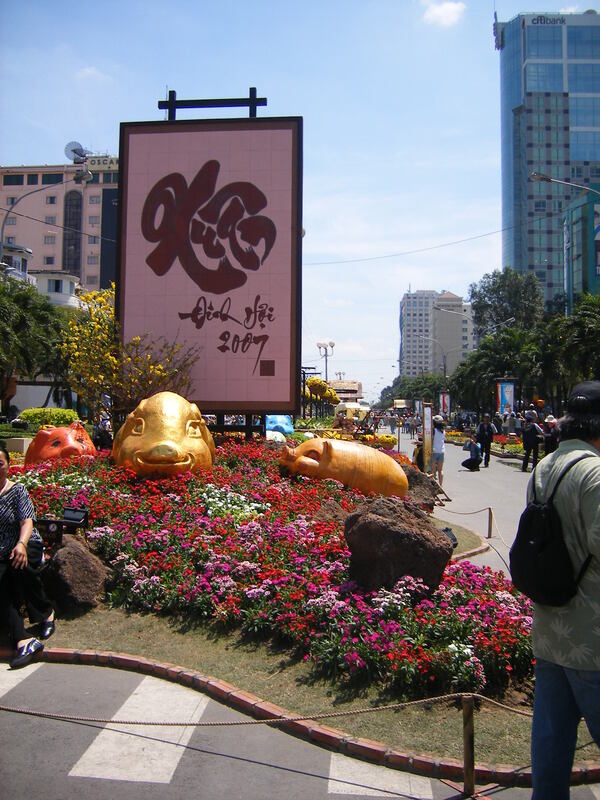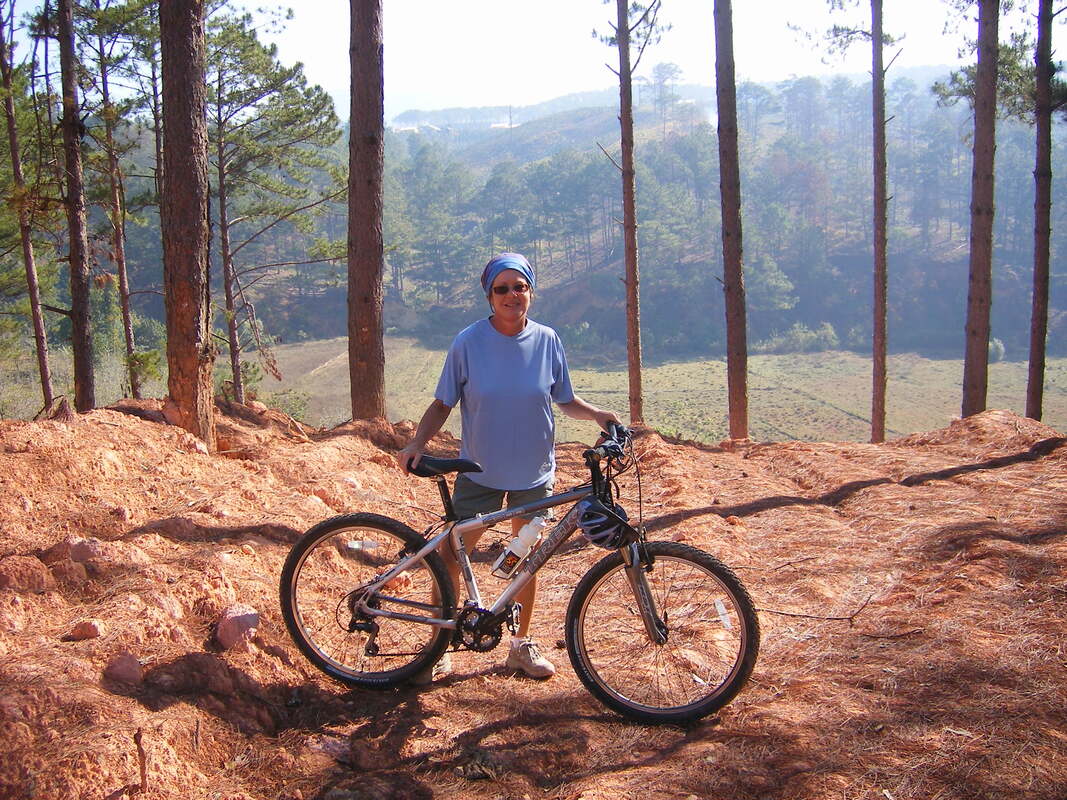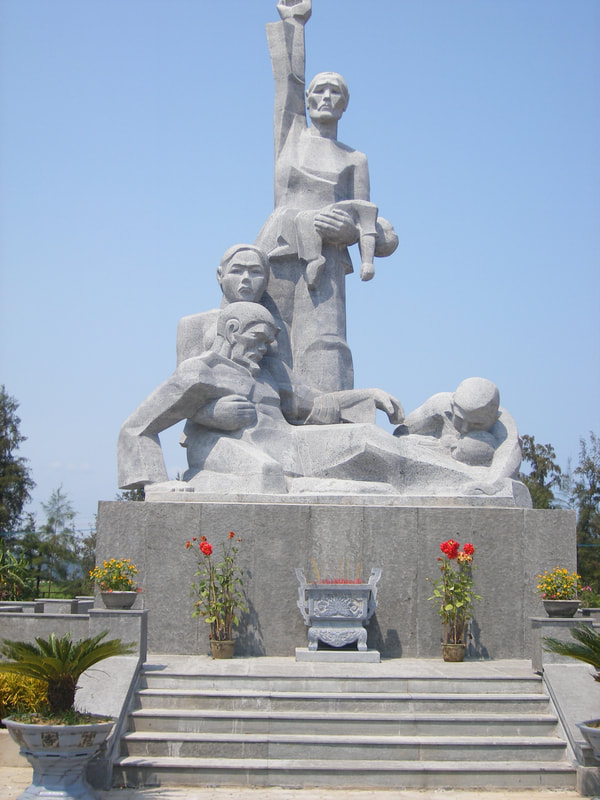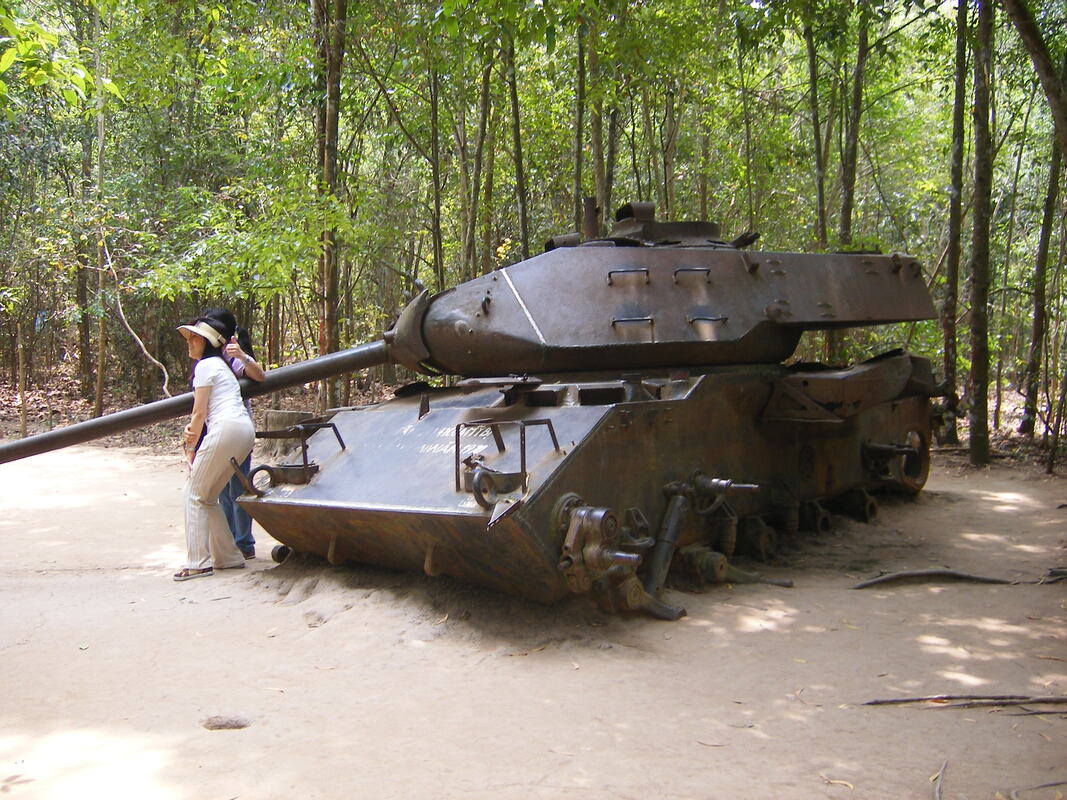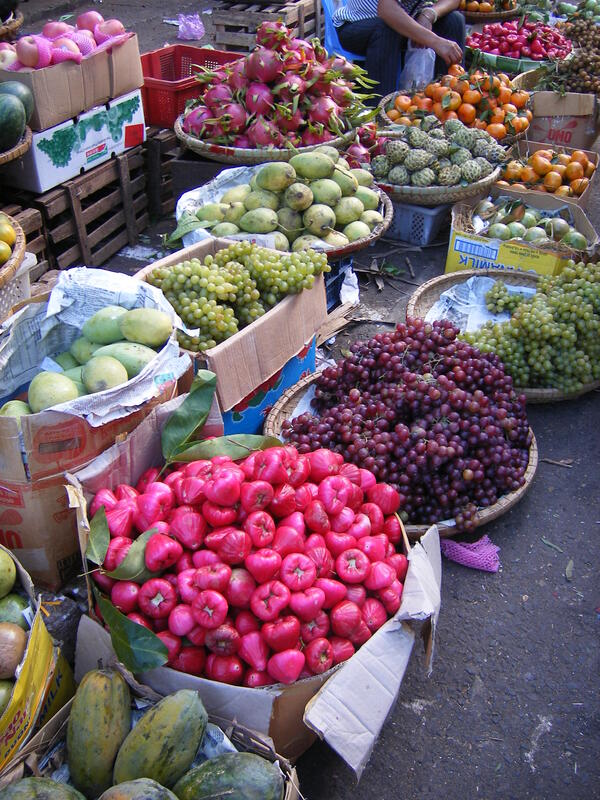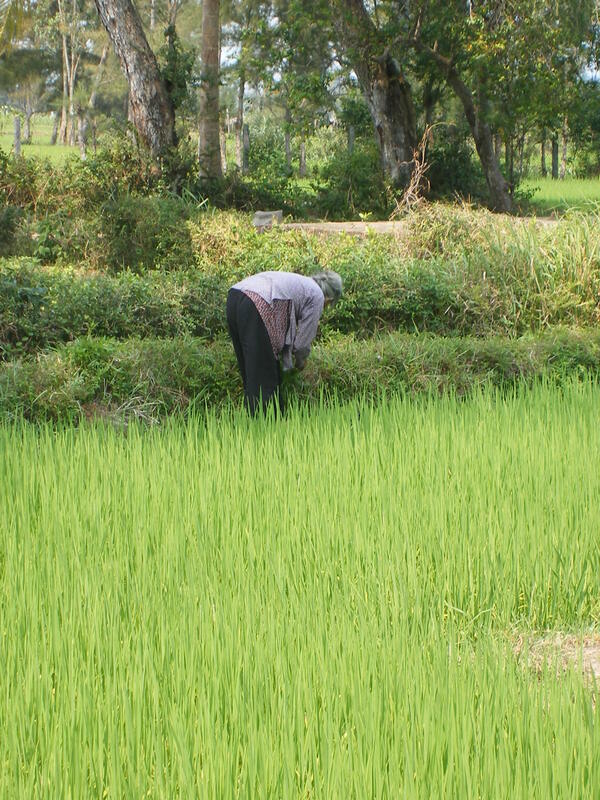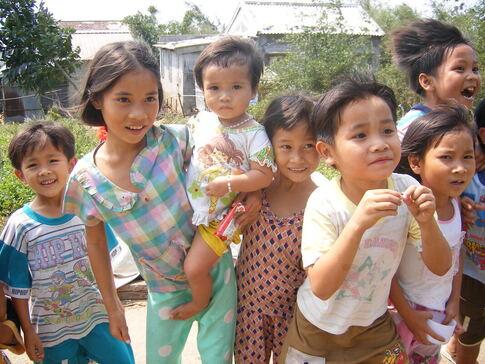Tour de Vietnam by Sarah Owens
The arrivals hall at Ho Chi Min Airport swarms with people. No air con, no signs and no help. I plunge into the crowds towards immigration. It’s the day before Tet (Vietnamese New Year) and the busiest time of year.
Tomorrow I join a group to cycle to Hue, 800 kilometres, crossing the Truong Mountain Range via the infamous Hai Van Pass. Outside the airport, I attempt to cross the road to find my hotel. A tidal wave of bicycles, trucks and scooters flow around me. Ahead is the Saigon River smelling of rotting fish and ammonia.
Despite the chaos on the road, I feel safe in the vast crowds and breathe in the unfamiliar smells. No fast food outlets or burger bars here, but a mixture of sweet incense, honey and fried rice. The street blaze with sunflowers, chrysanthemums and marigolds and Calamansi and kumquat trees loaded with orange fruit line the streets. Coloured lanterns glow and dancing dragons shimmy to a throbbing beat.
At midnight the crowd falls silent as golden fireworks illuminate the sky. A little girl dressed in traditional red silk Ao Dai, embroidered with golden bamboo and peach blossom touches my arm and holds out candied ginger.
I try out my Vietnamese. “Cam o’n ban.” She giggles and hides behind her mother. What a welcome to Vietnam and the Year of the Golden Pig.
The following day I find my way to the rendezvous point to meet my seven fellow cyclists. They look like pro- riders and I’m nervous about what lies ahead. A young Vietnamese man with bulging thigh muscles and a big smile greets us.
“Xin Chao. I’m Gee, your guide. Let’s check our bikes and go.”
We’re off. A short 40km ride out of Saigon to the famous Cu Chi Tunnels. I pace myself alongside Biddy and Ian who are celebrating their silver wedding. It’s hot, but flat and I feel reassured. At Ben Duoc we walk through the inhospitable jungle littered with burnt out US tanks and lethal torture traps. Beneath us lies a 200-kilometre labyrinth of tunnels, used during the Vietnamese War. A section is open to tourists and I slither down into the inky darkness crawling along the tunnel on hands and knees. The heat is suffocating but I shiver in the dark and quiet. I scrabble back up into the light, gasping for air. How had the Vietnamese survived down here for years?
We’re up at 5 a.m. the next day for 80 km to the central highland town of Dalat. The roads are treacherous, full of potholes and killer hills. The temperature soars. A truck blasts its horn and belches out acrid fumes making my eyes stream. Where are the pine forests and lush green paddy fields? We reach Dalat late and book into our hotel.
Gee takes us to the local market for bowls of delicious banh tet (sticky rice cake with mung beans rolled in banana leaves). Exotic spices, noodles, red, green and golden vegetables are displayed in open pans. I barter a few thousand dong for some spiced nuts. I’m sharing a room with Cherry, a hard-core cyclist from Germany. She has state of the art gear and laughs as I rinse out my one pair of padded shorts.
We turn in early after a team brief.
“Tomorrow we cycle 100km.” Gee tells us.
“Will the roads be easier?” I ask.
It’s undulating”. He grins. I don’t like the sound of undulating.
The hills are relentless and humidity drains me. We stop every 20km to take in fluids and snacks. Every muscle aches and my hands blister. The others disappear over the brow of a hill and Gee drops back to ride with me.
“You ok?
“Me? I’m fine.” I grit my teeth and pedal harder. We sample roadside eateries, but I stick with plain rice or noodles not wanting to try out unknown livestock. I dream of a Starbuck’s double latte and a jam doughnut.
After a few days the landscape changes as we cycle up Ngoan Muc Pass. At last we leave the polluted highways and approach the South China Sea. The humidity drops. A cool breeze fans my face with the scent of pine. The hills keep coming, but I can get up them now. We cycle through remote villages and children run alongside. “Cao” they call and try to high five us. I stop to take a photograph and show them the digital display. They smile.
“Do these children go to school Gee?”
“Only one child from a family goes to school. It’s normal for a family of eight to live in a small shack.” Gee hands out sweets and drinks before we move on.
It’s only been a week in the saddle, but feels longer as we reach the seaside resort of Nha Trang for two day’s rest. What bliss to be off my bike. After a good’s night sleep, Gee arranges a boat trip and we sail around islands with sandy beaches and coconut palms. The old wooden vessel creaks and I lie out on the upper deck enjoying a traditional massage, listening to the sing song chatter of the crew and savour the smell of freshly cooked spicy seafood.
Off again, we head for Quang Ngai, stopping at My Lai, site of the 1968 Massacre of three hundred villagers, mainly women and children. I walk around the burnt out village, touching withered trees and walls riddled with bullets. The only sound comes from an old woman muttering as she tends a barren patch of land. This experience touches me deeply.
Sombre, I climb back on my bike for the long ride to Hue, but first we have to cross the Hai Van Pass. At the start of the 10km ascent I look up. No wonder it’s known as the Pass of Ocean Clouds, I can’t see the summit.
“See you at the top.” Cherry calls out as she passes me early on. My wheels turn slower and slower as I grind down through the gears. All I hear is my ragged breath as I zig zag across the road. My legs burn as I crawl up that mountain, one metre at a time. I grit my teeth determined to make it to the top in one go.
Gee spurs me on and at last I reach the summit. I’m on top of the world. Thick clouds gather and Gee calls for us to start the 30km descent. Still buzzing I whirl around corners at high speed, one minute in thick cloud, the next in brilliant sunshine. We round a sharp bend.
“Look out.” Gee shouts.
My front wheel clips a pothole and I fly over the handlebars, hit loose gravel and slide. My bike is battered and so am I, but no giving up. I’m going to finish this trip.
At Hue we board the Reunifcation Express to Hanoi. Foreigner’s travel first class, but it’s a hot dirty carriage with four hard berths. Sleep is impossible in the oppressive heat and my arm throbs. The train is crowded with Vietnamese families cooking on camp stoves in the corridors.
At Hanoi I bid ‘Tam biet (farewell) to Gee and the group. My whole body aches and I have some spectacular scars on my arm, but I’ve done it. Visiting war sites, swimming in the South China Sea and experiencing the simplicity of life in rural areas has put the physical hardship of cycling in Vietnam into perspective.
